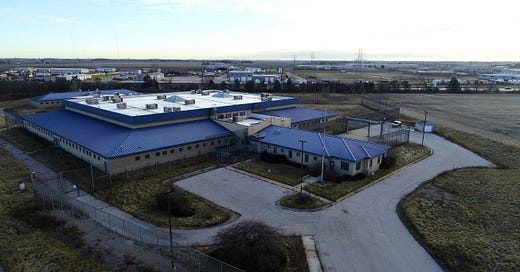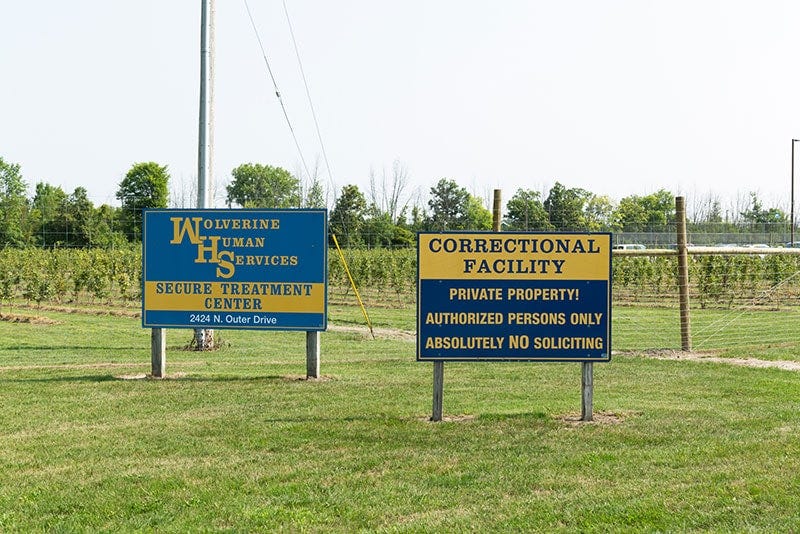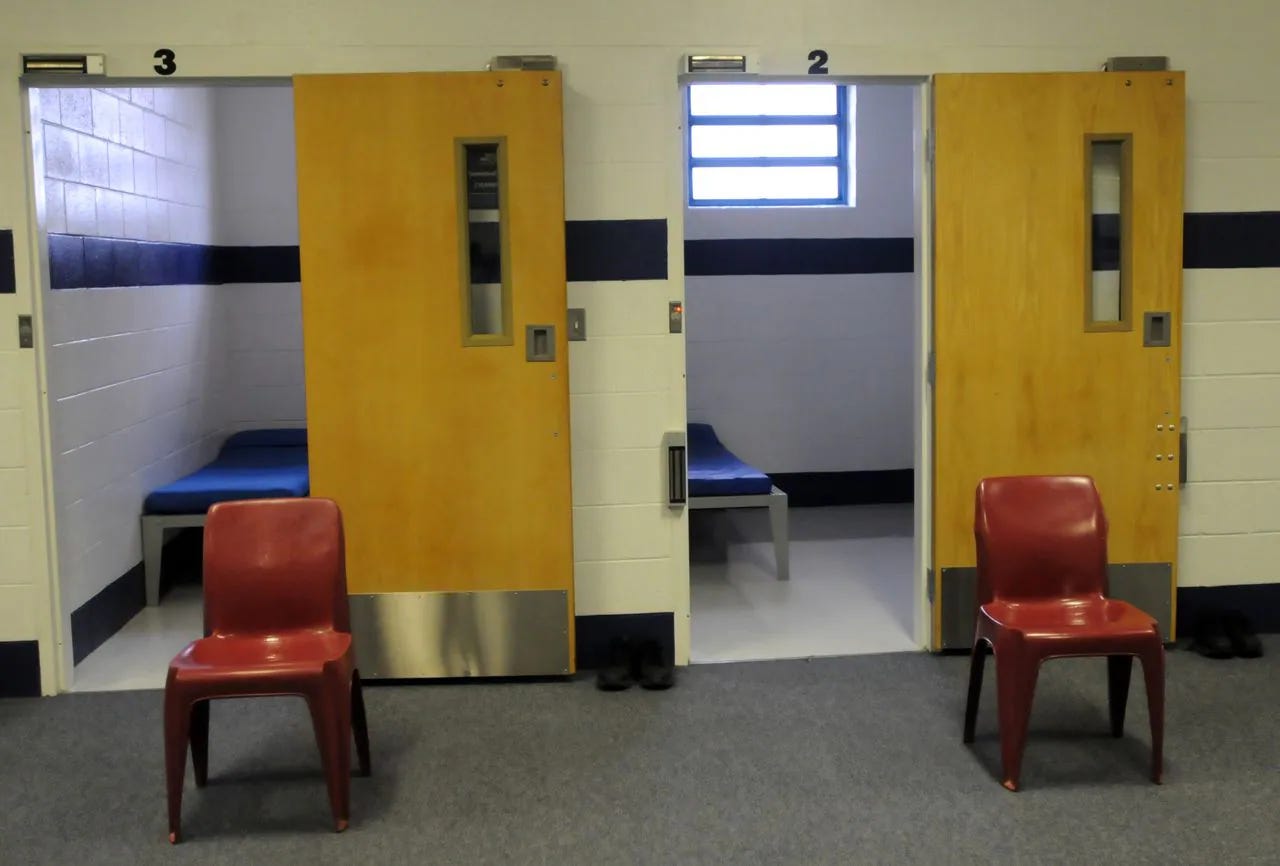Growing Up In The Michigan Juvenile System
Juvenile is supposed to be rehabilitative. Often it only adds more trauma and prepares kids to get ready for adult prison.
Even though I grew up in a middle-class family with both parents around, as well as a close-knit sibling group, I didn’t have a normal teenage upbringing. From age 15 to 19, I was in and out of juvenile correctional facilities, treatment programs, and jails.
I spent a lot of time in the Ingham County Youth Center and a rehab for youth called Kairos, but the most significant place I was sent to was a facility called Wolverine Secure Treatment Center. Wolverine was a correctional facility for teenagers located outside of Saginaw, a placement I was sentenced to for a year by Ingham County’s juvenile court system.
Out of all the places I have been in my life, Wolverine was by far the worst, and that includes the Ingham County Jail. Jail is terrible. My first stint there was actually one week after I turned 17. Back then they could put 17-year-olds in general population, and it was rough. With that said, however, I would have rather served three years in jail than one year in Wolverine. Wolverine was Michigan’s first privately owned juvenile correctional facility that opened in 1997, but it was shut down by the state in 2021 due to what the MDHHS described as “substantiated physical abuse and safety-related violations.” It was a hell hole with abusive staff, a facility run by young gang members, little to no contact with the outside world, and a hopelessness in the air that made you feel like you were never going to get out.
I haven’t spoken to anyone that I was in Wolverine with in at least 15 years. Sometimes I wonder where they are at, what they became in life, and how much their stay in Wolverine affected them. Because it shaped me – who I was when I left was a completely different person than I entered as. But not a lot of people know what it was really like growing up in this system. A lot is written about adult prisons, while there is very limited info out there about juveniles. That is why I am going to be writing a series of articles shedding light on Wolverine and the Michigan juvenile system. Lately, I have been reading a lot of news stories about the problems going on in Wayne County with their juvenile facility. The state had to take it over for a while to get it under control, due to sexual and physical assaults. This is happening all over. Juveniles are supposed to be rehabilitative and designed to change the behavior of kids, so they don’t end up being prisoners in the adult system. Unfortunately, that is not happening, which is why I wanted to write about my experiences and start raising awareness. I hope it can make a difference and maybe even help someone else.
I was sent to Wolverine because of smoking pot while on probation for a receiving and concealing stolen property charge. I was held at the Ingham County Youth Center in Lansing for over a month until I finally got transferred to Wolverine, which I thought was an actual treatment center like its name indicates. I was one of the first ever kids from Ingham County to be sent to Wolverine. When my probation officer recommended Wolverine at my sentencing, the judge literally searched the place up on Google in the middle of the hearing and said, “It looks nice.” And so – just like that – my life was altered in a 10-minute hearing by a judge that had no clue where he was sending me. The probation officer did make it sound nice. He said it was a locked down facility but that it offered counseling, group therapy, and psychiatry. As a teen, I was not happy that I couldn’t go home, but at the time the place did not seem terrible.
That all changed on the way there in the state van when we started getting near the place. It was huge. You could see it from the highway, and it looked like a prison. It was surrounded by a 16-foot fence and right before you pull into the property there is a big sign that says, “CORRECTIONAL FACILITY.” That was when I knew I was lied to, or at least misinformed. This was no treatment center. North Korea can call itself the Democratic People’s Republic of Korea, but that doesn’t mean it is actually a republic.
Once I arrived, the first thing they did was cut off my hair. What a greeting, right? You are not allowed to have anything besides a buzz cut there. They then had me strip my clothes off and changed me into the standard all-black cotton T-shirt and black shorts. I got an eerie feeling right off the bat and started panicking inside. One of the first things I asked the staff was how long I was going to be there. They laughed and told me they had no idea; that the minimum stay was 9 months but only if you followed all the rules. After the intake process, they walked me around the building and showed me where my pod was. While walking around, they informed me anytime I was outside the pod I had to walk with my hands behind my back in a single file line with other pod members. When leaving or entering the pod, you had to announce, “stepping in” or “stepping out.”
When I finally got to my pod, the staff members radioed inside that we were coming in, and the door was unlocked. Walking in that first day, I had no idea that pod was going to be my home for the next year. Inside I was telling myself that I would be out of there in a few weeks, a couple months at the latest. Once I was able to call my parents and tell my probation officer that this was a prison, they would do the right thing and get me out of there. That is what I thought, at least.
I was the 10th person in my pod, and for the next hour I introduced myself to my fellow podmates in a circle the staff had us form. I was the only white kid in the pod, and though I am not racist in the slightest, it was definitely a culture shock after spending my whole life in Mason, Michigan. Every kid in my pod was from Detroit, besides one other that was from Muskegon. They all seemed to know each other well since most of them had been there for several months together. It was extremely hard fitting in and relating to other kids my age that were from completely different worlds. They didn’t even understand what Mason was. When I told them where I was from, one of them said “what the hell is a Mason.” It makes sense, as I came to find out that many of them had never even stepped foot outside of Detroit. Getting sent to Wolverine was the first time they had ever been out of the city.
It was definitely an adjustment. I had to learn how to interact with people I had never been around. I started telling people I was from Lansing, not Mason. Over time my speech started to change, I talked a little different, got to know a lot about gang life in Detroit, and when we were able to get out to the basketball court, I showed them I could hoop. Some of them became my friends in there, but that didn’t mean it was peaceful. Gangs were very prevalent in Wolverine, and though there were no stabbings like prison, fist fighting was an almost daily occurrence, and a couple riots happened in my time there.
The hardest part about it all was that Wolverine cuts you off from the outside world. You were not allowed to make phone calls unless you were with your counselor, and that only happened maybe once every month or two. And even then, the calls were extremely brief, and you were always surrounded by other group members, so it was never private. Visits happened infrequently, as well. You could get one visit per month, and those were also done in close proximity to other group members so you could always hear what other groups were saying. I was never able to talk with anyone in my family freely. I had all this pent-up emotion and anger, but I couldn’t ever get it out. I felt betrayed by the justice system. I was a kid – a troubled one, but I didn’t deserve to be sent to a place where there was no help, no counseling, no contact with the outside world, and where abusive staff took advantage of kids and allowed gangs to fight every day. It was a nightmare.
Today, I have moved past it. It took me a long time to do that, though. For years I carried this resentment and anger inside me. I pretended to be someone I wasn’t because in Wolverine I adapted to develop this new Aaron that allowed me to survive and fit in. I let it take over my personality, and it took a lot of therapy and help to figure out who I really was. But as thankful as I am to have reached a point where I no longer let that define me, I know this is still happening in Michigan with so many other kids. So that is my hope in all of this, to make a difference and shed light on a broken system. So many kids today are still being sent to placement facilities and juvenile programs where instead of getting help, they are being retraumatized. The more people talk about these issues, the more likely awareness could help bring change.
-In the next article, I am going to get more into what the daily life was like in Wolverine, what kind of gangs there were, how they operated, and talk more about the staff that really made the place hell.






